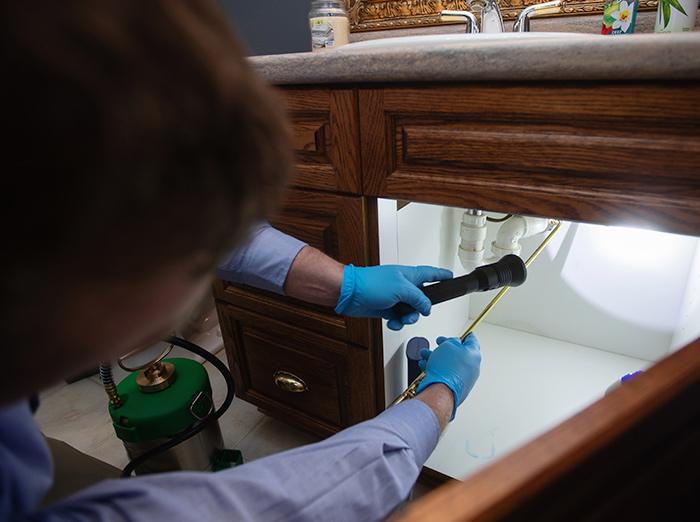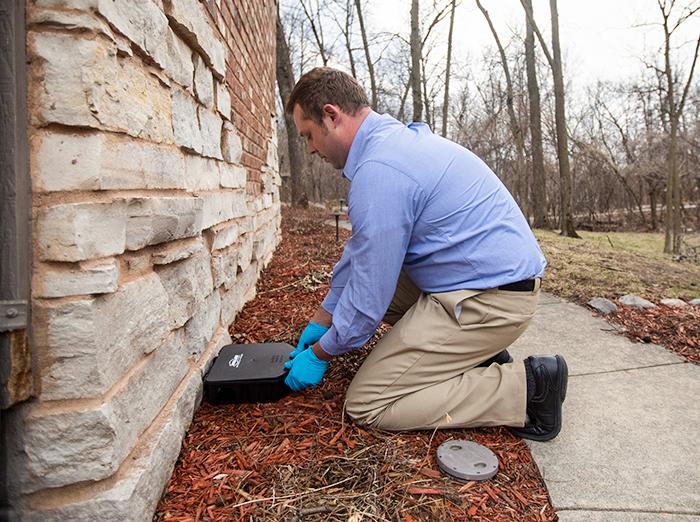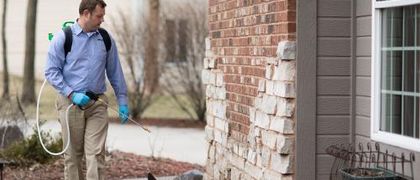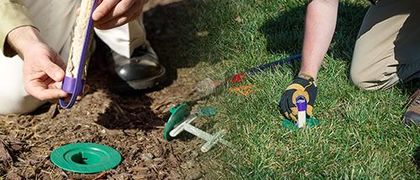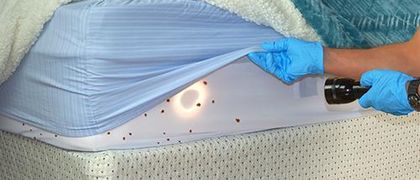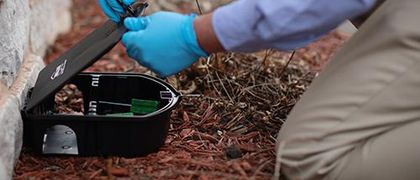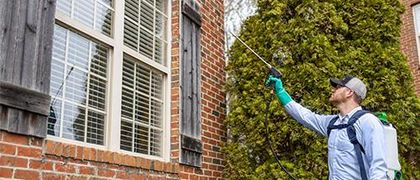How Are Mice Getting Into My Crawl Space?
Mice are common pests, yet they can still seem a bit mysterious. It is because they're sneaky critters with strange behavior patterns—and abilities most homeowners don't realize. If you've found mice in your crawl space and you're wondering how they got in there, you'll find everything you need to know right here in this short guide. We'll look at how they get into your crawl space, why they get in, and where they go from there. If you'd like a professional rodent inspection, we're happy to help. We provide professional rodent control services in Omaha, Kansas City, and Des Moines as well as throughout the Midwest. Contact us for assistance.
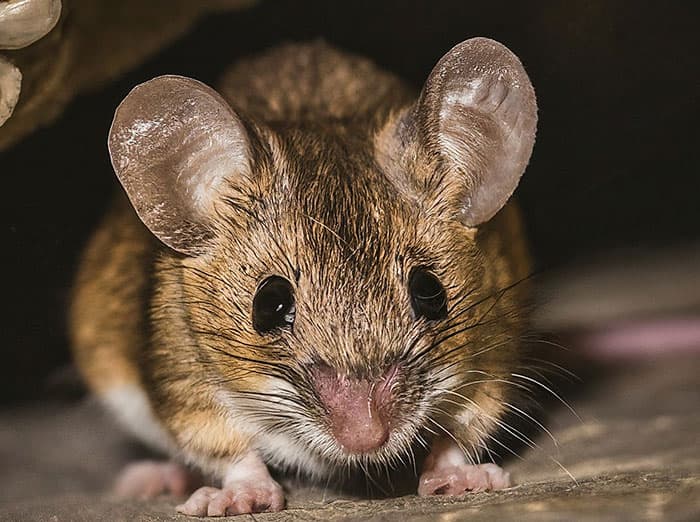
How mice enter crawl spaces
Mice range from 2.5 to 3.75 inches with a long thin tail that is about the same length, but don't underestimate these tiny rodents. They have amazing abilities that are likely to surprise you. They use these abilities to get into any space, including your crawl space.
Gnawing
All rodents have incisors that never stop growing. In order to avoid harm, rodents file these teeth down by gnawing on things. One material they are particularly fond of gnawing on is wood because they can make small tree holes larger and slip into tree cavities. If a mouse sees a small opening that leads into your crawl space, it can make the little hole larger by chewing on wood and other building materials.
Squeezing
The body of a mouse is squishy, and an adult mouse can squeeze itself through a gap the width of a dime. Not only is it able to do this, it wants to do it. Mice love tight spaces. They are the opposite of claustrophobic.
Therefore, they won't have trouble squeezing and wiggling through a tight gap to get into a crawl space. For example, a gap around a pipe.
Tunneling
Mice have clawed feet, and they can use their claws to dig. If motivated, a mouse will have no trouble digging a hole in the soil to get underneath skirting and enter a crawl space.
Swimming
Mice are great swimmers and strong animals. It is estimated that a mouse can tread water for three days. They use their swimming ability when living in sewers. When mice get into sewers, they can sometimes follow culvert pipes to get into crawl spaces underneath man-made structures, particularly through old pipes that are broken and no longer used.
Jumping
Mice can jump like Michael Jordan. A tiny mouse can leap as much as thirteen inches straight up. If there is an opening to your crawl space that you think is too high for a mouse to get into, keep this ability in mind.
Climbing
If a mouse can't jump to an entry point, it may climb to it. Mice use their claws to scale exterior surfaces the same way a squirrel climbs bark on a tree. Mice have been observed climbing all the way up to gable vents. They will have no trouble getting into a vent that leads into your crawl space.
As you can see, mice have many abilities that can allow them to access your crawl space. What do they do after they get in? Let's take a look.
What mice do in your home
Once a mouse gets into your crawl space, it will do a few things you're not going to like. They can't help it. They just do what comes naturally to them. Here are a few facts you should definitely know:
- Mice are known to chew on wires and are considered a fire hazard.
- Mice chew building materials, gain access to wall voids, and come out of voids in kitchens, pantries, and other places.
- Mice chew holes in packages and contaminate food with their hairs and saliva.
- Mice climb up through wall voids and get into attic spaces, where they leave droppings and urine on insulation, contaminate stored items, and cause damage.
When you detect warning signs of mouse activity, it is a good idea to contact a licensed professional. It isn't good to have mice in your home, and tracking mice requires specialized knowledge of mouse behavior and rodent pest control.
Help for mouse problems
Mice are difficult to control because they hide in structural voids. They're also clever animals that commonly outsmart traps. You can save yourself a lot of frustration by having a pest control service provider address your rodent control issue.
If you're in Omaha, Kansas City, Des Moines, or elsewhere in our multi-state service area, let the Miller Pest & Termite team help you deal with mice and rats as well. Our highly trained and licensed technicians use a variety of methods to exterminate rodent problems including tamper-resistant bait stations, traps, and sealants. What’s more, our rodent control solutions are 100% satisfaction guaranteed!
Contact us today for help getting rid of mice in your crawl space or elsewhere in your home!
Ongoing Home Pest Control Recommendation
Miller Guard
Our signature Miller Guard pest control plan stands out in the industry by giving you Full Pest Coverage and Zero hidden fees. It is designed to eliminate and prevent insect and rodent problems by targeting pest entry and exit points for maximum effectiveness. It includes an initial premium interior application, exterior applications, web removal, and wasp nest removal.
- Ongoing Preventive Services
- 29 Pests & Services Covered
- Initial Premium Interior Application
- Exterior Applications
- Rodent Control
- Wasp Nest Removal
- Cob-Web Removal
- 1-Year Service Agreement
Starting at:
$4999A Month
Free Quote Or Call (515) 518-8864

Additional Miller Guard Details
Pests Covered: Asian Beetles, Boxelder Bugs, Carpenter Ants, Carpet Beetles, Centipedes, Clothes Moths, Drain Flies, Earwigs, Fleas, Fruit Flies, Grain Beetles, Hornets, House Ants, Indian Meal Moths, Mice, Millipedes, Pill Bugs, Rats, Roaches**, Silverfish, Spiders***, Stink Bugs, Wasps, Weevils, Yellow Jackets
Service frequency will vary based on geography. The Miller Guard program does not include the following pests: honey bees, flies, lice, dust mites, mosquitoes, exterior ticks, ornamental/turf pests, slugs, snails, termites, wildlife, birds, and brown recluse spiders.
- Pricing does not include initial fee
- Must have credit card on file
**American, German & Oriental
*** Venomous & Non-venomous
Get Help Now!


